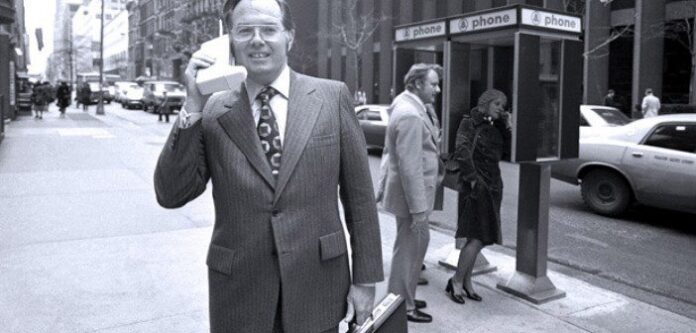Editor’s Note: RCR Wireless News goes all in for “Throwback Thursdays,” tapping into our archives to resuscitate the top headlines from the past. Fire up the time machine, put on those sepia-tinted shades, set the date for #TBT and enjoy the memories!
NTT DoCoMo starts selling 3G handsets
TOKYO—NTT DoCoMo said it will begin selling handsets compatible with its planned third-generation (3G) FOMA network beginning 1 October at 260 stores in the Tokyo metropolitan area, the day the network is scheduled to launch. The three handsets include the FOMA N2001, a “standard-type” handset, the P2101V, a “visual-type” handset with camera functions and a color screen, and the FOMA 2401, an all-in-one type data-card handset. DoCoMo said the handsets will be able to send packet communications at a maximum of 384 kilobits per second (kbps) down to the handset and 64 kbps from the handset. … Read more
Voicestream gears up for network upgrade to GSM/EDGE
DALLAS, United States, and STOCKHOLM, Sweden—VoiceStream Wireless signed contracts with both Nortel Networks and Ericsson for its next-generation services. Nortel said it signed a US$300 million GSM contract to upgrade VoiceStream Wireless’ national networks for deployment in the first quarter of 2002. Under the pact, Nortel Networks will supply radio base station equipment, switching and professional services for Enhanced Data Rates for Global Evolution (EDGE) technology. “It also includes intelligent network equipment to support billing and location-based services,” said Nortel in a statement. Ericsson announced a US$150 million agreement with VoiceStream to expand its GSM network and to deploy EDGE. … Read more
2.5 GHz nixed as a US 3G band
WASHINGTON—The Federal Communications Commission (FCC) took the 2500 MHz band out of consideration for third-generation (3G) wireless services, but relaxed rules to allow mobile use of frequencies previously limited to fixed communications. The FCC ruling comes in response to heavy pressure from Congress on behalf of schools, churches, WorldCom and Sprint, which vigorously opposed sharing the band or moving off it to make room for 3G services. While the vote to remove the 2500 MHz band from the list of 3G candidate bands was 5-0, Democratic FCC members Michael Copps and Gloria Tristani, who has since left the agency, dissented to the mobile component of the decision.“Building upon the FCC’s prior decisions to expand the potential uses of the 2500-2690 MHz band, the FCC will rely on market forces rather than making regulatory judgments about the best use of the band,” stated the Republican majority of FCC Chairman Michael Powell and commissioners Kathleen Abernathy and Kevin Martin. … Read more
Leap launches service in Dayton
SAN DIEGO-Leap Wireless International Inc. launched its Cricket wireless service in Dayton, Ohio, the company’s regional headquarters in the upper Midwest.
Leap also announced it acquired wireless operating licenses for Fort Collins and Greeley, Colo., and Eugene, Ore., as well as an undisclosed amount of cash from American Wireless License Group L.L.C. in exchange for 10 megahertz of spectrum in Little Rock and Pine Bluff, Ark. … Read more
SMS gains popularity in China
BEIJING—Twenty million of China’s 123 million mobile-phone users regularly use short message service (SMS) to send each other text messages. China Mobile, the country’s biggest operator, predicted that 10 billion messages will be sent this year. Sending an SMS is four times cheaper than a one-minute phone call in China. … Read more
Operators vs. banks in mobile banking services
OXFORD, United Kingdom—Recent efforts by European mobile operators to offer financial services looks set to lead to a clash with the global banking community. Most of Europe’s large operators have already launched, or will shortly do so, m-banking or e-wallet services in an effort to grab a share of the profitable payments arena, said to be worth up e100 billion (US$91.9 billion) in revenues by 2008. While some observers claim that mobile operators have gained an early advantage, mainly due to the banking community’s inactivity, an increasing number of banks are now hurriedly drafting plans for mobile payment services. According to an industry analyst, cell-phone operators have been misguided in thinking that they could handle payments themselves. … Read more
Nokia gets into ‘m-commerce’
HELSINKI, Finland—Nokia announced plans for a wide-ranging test of mobile commerce products and services, moves that include making secure credit card payments using a mobile phone wallet application. Nokia is teaming with IBM, Visa International, local banking and technology companies and Finnish mobile operator Radiolinja to conduct the tests. … Read more
GSA: Focus on services, not network tech
OXFORD, United Kingdom—European cell-phone operators have been criticized by the Global Mobile Suppliers Association (GSA) for promoting the technical attributes of their networks rather than services. The GSA, a trade association formed by the major cell-phone equipment vendors, said operators have presented a confusing value proposition to users and have failed to interest potential consumers in mobile Internet services. One analyst claimed that operators also need to segment their marketing of services to be more effective in attracting users. Research conducted by the GSA indicated a lack of differentiation among operator offerings in terms of the types of content and services they provide. Operators in the United States and Western Europe tend to focus on news, particularly financial and sporting, and on search facilities. Entertainment, such as jokes, games and horoscopes, came second. … Read more
Check out the RCR Wireless News Archives for more stories from the past.

